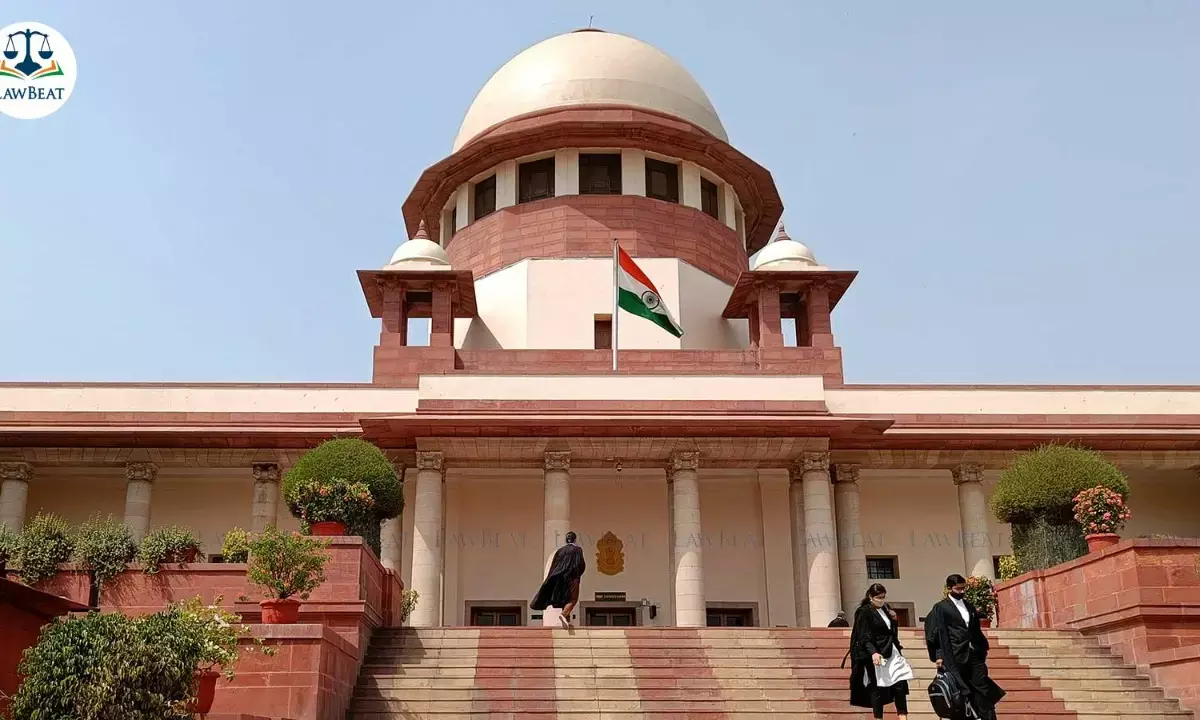Authority Empowered Under CCS Rules to Impose Minor Penalties Can Issue Chargesheet for Major Punishment: SC

The Supreme Court has held that under the Central Civil Services (Classification, Control & Appeal) Rules, 1965 (CCS CCA Rules), an authority empowered to impose minor penalties can also initiate disciplinary proceedings for major penalties and validly issue a chargesheet.
A bench of Justices Sanjay Kumar and Satish Chandra Sharma was hearing an appeal filed by the Union of India against a Karnataka High Court judgment that had set aside the chargesheets issued to a retired telecommunications officer on the ground that they were not approved by an authority competent to impose major penalties.
The Court noted that Rule 13(2) of the CCS CCA Rules explicitly allows a disciplinary authority competent to impose minor penalties to initiate proceedings for major penalties, even if it cannot itself impose them. The penalty order must ultimately be passed by the competent authority, but the initiation of proceedings, including the issuance of a chargesheet, is not invalidated merely because it was undertaken by a lower disciplinary authority.
“When Rule 13(2) is read with Rule 14 and Appendix 3 of the CCS CCA Rules, it is very clear that an authority empowered to inflict minor penalties (in the present case, the General Manager) can certainly issue a chargesheet even for imposition of major penalties,” the Court said.
The Court was dealing with a challenge raised by R. Shankarappa, a former Sub Divisional Engineer (Group ‘B’) in the Department of Telecommunications posted at Karnataka LSA, who retired on May 31, 2018. He faced prosecution in two criminal cases initiated in 2003 by the Central Bureau of Investigation, one for demanding and accepting a bribe of Rs. 1 lakh, and another for possessing assets disproportionate to his known sources of income. Though convicted in both cases, the Karnataka High Court stayed his convictions and sentences, and his appeals remain pending.
Meanwhile, two departmental chargesheets were issued to him under Rule 14 of the CCS CCA Rules, on May 27, 2006 and December 4, 2008, pertaining to the two criminal matters. The respondent challenged these proceedings before the Central Administrative Tribunal (CAT), Bengaluru, through six separate cases over time, alleging, among other grounds, that the chargesheets were void as they were issued by the Principal General Manager, an authority competent only to impose minor penalties.
He relied on the Supreme Court’s judgment in Union of India & Ors. v. B.V. Gopinath (2014) to argue that the charge-sheets required approval from the higher disciplinary authority competent to impose major penalties.
The CAT rejected his claim, holding that the initiation of disciplinary proceedings by the General Manager was in line with the statutory framework. The Tribunal emphasized that while the final penalty must be imposed by the competent major penalty authority, there was no bar on an authority competent to impose minor penalties from issuing a chargesheet under Rule 14.
However, the Karnataka High Court reversed the CAT’s decision, relying on B.V. Gopinath to hold that in cases involving major penalties, the charge memo must be approved by the authority competent to impose them.
Before the Supreme Court, the Union government argued that the High Court had erroneously applied B.V. Gopinath, which involved a specific office order requiring Finance Minister approval, an element not present in this case. The statutory rules alone governed the initiation of proceedings in the telecommunications department, and no such approval requirement was applicable.
The Court agreed, stating:
“In the light of the statutory provisions of the law, this Court is of the considered opinion that issuance of chargesheet by General Manager, Telecommunication could not have been faulted upon by the High Court solely by placing reliance upon the judgment delivered by this Court in the case of B.V. Gopinath.”
It further clarified that B.V. Gopinath involved unique administrative instructions applicable to the IRS cadre and did not lay down a universal requirement for prior approval by the appointing authority under Rule 14.
“In the present case, there is no such office order in respect of Department of Telecommunication and the statutory provisions governing the field also do not provide for any such approval from the Member, Telecommunications Commission,” the Court noted.
The Supreme Court observed that the disciplinary proceedings in Shankarappa’s case were conducted in full compliance with the CCS CCA Rules. The chargesheets were lawfully issued, and the inquiry had not suffered from any procedural irregularities. The penalty order was passed by the competent authority empowered to impose major penalties.
Accordingly, the Court allowed the appeal, set aside the High Court’s judgment dated November 18, 2022, and upheld the validity of the chargesheets. The original application filed by the respondent before the CAT stood rightly dismissed.
Case Title: Union of India & Ors. v. R. Shankarappa
Judgment Date: July 25, 2025
Bench: Justices Sanjay Kumar and Satish Chandra Sharma
